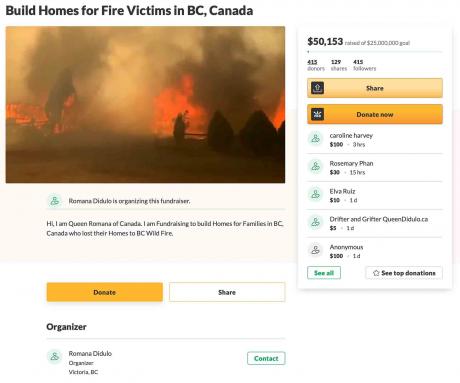This is included because it has been continued as the Reopening Ontario Act as per:
Orders continued
2 (1) The orders made under section 7.0.2 or 7.1 of the Emergency Management and Civil Protection Act that have not been revoked as of the day this subsection comes into force are continued as valid and effective orders under this Act and cease to be orders under the Emergency Management and Civil Protection Act.
Exception
(2) Subsection (1) does not apply to the order filed as Ontario Regulation 106/20 (Order Made Under the Act — Extensions and Renewals of Orders).
Clarification
(3) For greater certainty, an order that is in force is continued under subsection (1) even if, on the day that subsection comes into force, the order does not apply to any area of the Province.
Emergency Management and Civil Protection Act
RSO 1990, c E.9
Last amendment: 2019, c. 7, Sched. 17, s. 64.
...
Emergency Powers And Orders
-
Purpose
7.0.2 (1) The purpose of making orders under this section is to promote the public good by protecting the health, safety and welfare of the people of Ontario in times of declared emergencies in a manner that is subject to the Canadian Charter of Rights and Freedoms. 2006, c. 13, s. 1 (4). -
Criteria for emergency orders
(2) During a declared emergency, the Lieutenant Governor in Council may make orders that the Lieutenant Governor in Council believes are necessary and essential in the circumstances to prevent, reduce or mitigate serious harm to persons or substantial damage to property, if in the opinion of the Lieutenant Governor in Council it is reasonable to believe that,-
the harm or damage will be alleviated by an order; and
-
making an order is a reasonable alternative to other measures that might be taken to address the emergency. 2006, c. 13, s. 1 (4).
-
-
Limitations on emergency order
(3) Orders made under this section are subject to the following limitations:-
The actions authorized by an order shall be exercised in a manner which, consistent with the objectives of the order, limits their intrusiveness.
-
An order shall only apply to the areas of the Province where it is necessary.
-
Subject to section 7.0.8, an order shall be effective only for as long as is necessary. 2006, c. 13, s. 1 (4).
-
-
Emergency orders
(4) In accordance with subsection (2) and subject to the limitations in subsection (3), the Lieutenant Governor in Council may make orders in respect of the following:-
Implementing any emergency plans formulated under section 3, 6, 8 or 8.1.
-
Regulating or prohibiting travel or movement to, from or within any specified area.
-
Evacuating individuals and animals and removing personal property from any specified area and making arrangements for the adequate care and protection of individuals and property.
-
Establishing facilities for the care, welfare, safety and shelter of individuals, including emergency shelters and hospitals.
-
Closing any place, whether public or private, including any business, office, school, hospital or other establishment or institution.
-
To prevent, respond to or alleviate the effects of the emergency, constructing works, restoring necessary facilities and appropriating, using, destroying, removing or disposing of property.
-
Collecting, transporting, storing, processing and disposing of any type of waste.
-
Authorizing facilities, including electrical generating facilities, to operate as is necessary to respond to or alleviate the effects of the emergency.
-
Using any necessary goods, services and resources within any part of Ontario, distributing, and making available necessary goods, services and resources and establishing centres for their distribution.
-
Procuring necessary goods, services and resources.
-
Fixing prices for necessary goods, services and resources and prohibiting charging unconscionable prices in respect of necessary goods, services and resources.
-
Authorizing, but not requiring, any person, or any person of a class of persons, to render services of a type that that person, or a person of that class, is reasonably qualified to provide.
-
Subject to subsection (7), requiring that any person collect, use or disclose information that in the opinion of the Lieutenant Governor in Council may be necessary in order to prevent, respond to or alleviate the effects of the emergency.
-
Consistent with the powers authorized in this subsection, taking such other actions or implementing such other measures as the Lieutenant Governor in Council considers necessary in order to prevent, respond to or alleviate the effects of the emergency. 2006, c. 13, s. 1 (4).
-
...
Orders in emergency
- Purpose
7.1 (1) The purpose of this section is to authorize the Lieutenant Governor in Council to make appropriate orders when, in the opinion of the Lieutenant Governor in Council, victims of an emergency or other persons affected by an emergency need greater services, benefits or compensation than the law of Ontario provides or may be prejudiced by the operation of the law of Ontario. 2006, c. 13, s. 1 (5). -
Order
(2) If the conditions set out in subsection (3) are satisfied, the Lieutenant Governor in Council may, by order made on the recommendation of the Attorney General, but only if the Lieutenant Governor in Council is of the opinion described in subsection (1),-
temporarily suspend the operation of a provision of a statute, regulation, rule, by-law or order of the Government of Ontario; and
-
if it is appropriate to do so, set out a replacement provision to be in effect during the temporary suspension period only. 2006, c. 13, s. 1 (5).
-
-
Conditions
(3) The conditions referred to in subsection (2) are:-
A declaration has been made under section 7.0.1.
-
The provision,
-
governs services, benefits or compensation, including,
-
fixing maximum amounts,
-
establishing eligibility requirements,
-
requiring that something be proved or supplied before services, benefits or compensation become available,
-
restricting how often a service or benefit may be provided or a payment may be made in a given time period,
-
restricting the duration of services, benefits or compensation or the time period during which they may be provided,
-
-
establishes a limitation period or a period of time within which a step must be taken in a proceeding, or
-
requires the payment of fees in respect of a proceeding or in connection with anything done in the administration of justice.
-
-







Comments